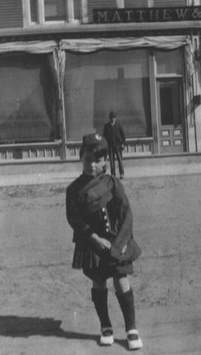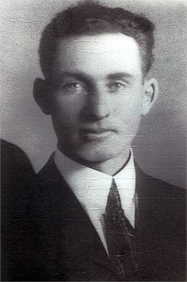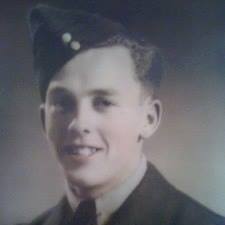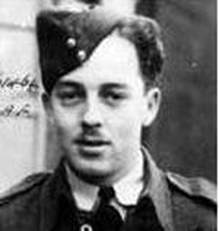As a result of his injuries, his right shoulder had limited range of movement. This injury directly contributed to his death in 1929. His half-brother, Joseph Wilfred McEachern, was digging a well when he was overcome by natural gas in the well. John James went into the well to rescue his younger brother. Unable to pull them both out, he died alongside his brother, leaving behind a wife and 5 young children ranging in age from 3 to 9 years old.
I am struck by the difference in these two photos. The youthful innocence in the photo on the left, and the weariness in the photo on the right.
I can't even begin to imagine what these two young men experienced: one in "The Great War" otherwise known as "The War to End All Wars", and the second in World War II, barely more than two decades later.
Wars continue to be fought. Young lives continue to be lost. Families continue to mourn. It is important to remember their sacrifice - not only on November 11th of each year, but every single day. If history does not teach the human race the necessary lessons, we are bound to be caught in a repeated cycle of bloodshed, loss and heartbreak until we do learn.





 RSS Feed
RSS Feed